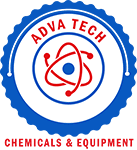Description
Siglec-10 is immune system-restricted and highly expressed in peripheral blood leukocytes. Siglec-10 preferably binds to α-2,3- or α-2,6-linked sialic acid (similarity). Siglec10 is involved in the negative regulation of B cell antigen receptor signal transduction. The inhibition of B cell activation depends on PTPN6/SHP-1 (by similarity). The binding of Siglec10 to CD24 may be involved in the selective suppression of the immune response (by similarity) to risk-related molecular patterns (DAMPs) (such as HMGB1, HSP70 and HSP90). The combination of Siglec10 and CD24 may regulate the immune response of natural killer (NK) cells. Play a role in controlling autoimmunity (by similarity). In the process of initiating an adaptive immune response by CD8-α+ dendritic cells, cross-presentation is inhibited by weakening the formation of MHC class I peptide complexes. The function seems to imply the recruitment of PTPN6/SHP-1, which dephosphorylates NCF1 of the NADPH oxidase complex, thereby promoting phagosome acidification (by similarity).


